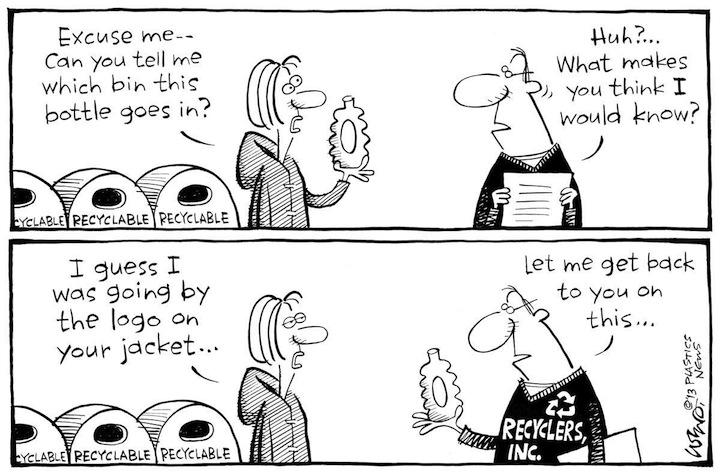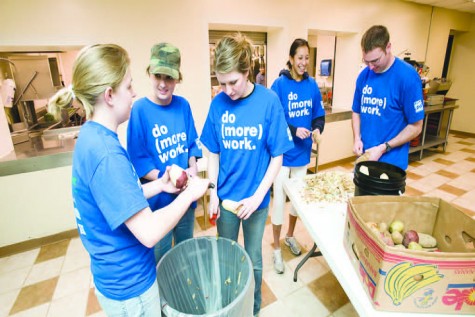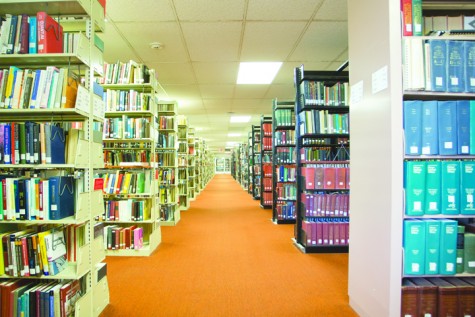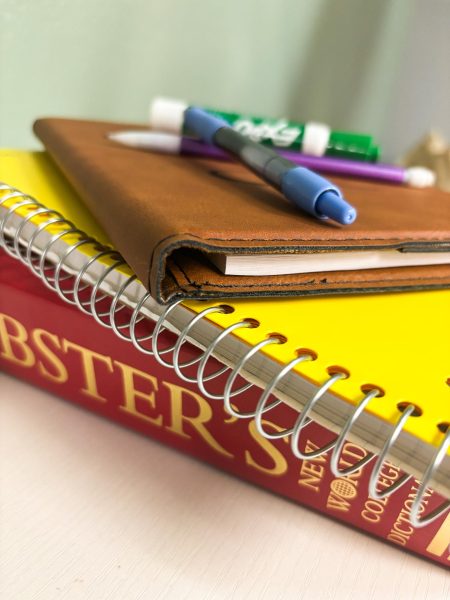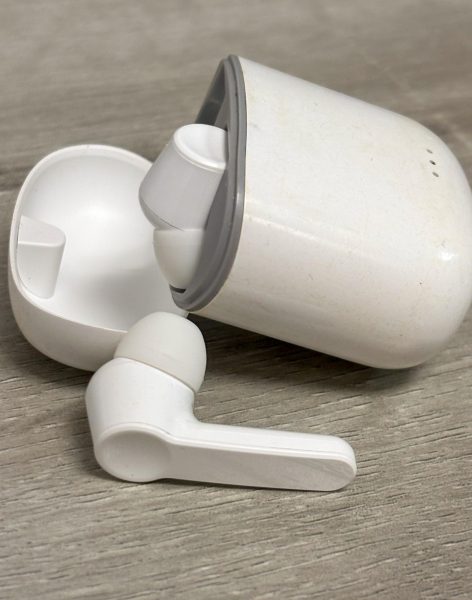Recycling: have less waste, more beer
Illustration by Rich Williams/Plastic News.
When I was in the eighth grade, my German teacher asked our class of 30 kids how many of our families recycled. Until that point, I hadn’t found my weekly routine of sorting the recycling with my brother out of the ordinary, but when my hand was the only one raised that day in class, my perspective changed.
I’ve thrown away countless food products and recyclable materials, and the guy I’m dating littered on Earth Day a few years ago (okay, kind of funny). So, no, I don’t feel I have any right to judge.
I am not afraid, however, to spread awareness and reminders that we are quickly accumulating waste and running out of room for it, unknowingly or uncaringly.
I’m not blaming anyone, because it isn’t a cultural norm so we don’t think about it. It isn’t made convenient, but there is so much we can do, and it’s all about changing our routine and not living in ignorant bliss.
I like convenience just as much as the next person, but we need to look toward change, and quickly.
If we don’t look at the many environmental problems with urgency, we will be forced to eventually, or our children and their children will suffer greater consequences.
Humans living on earth hundreds of years from now will wonder why we didn’t think about humanity as a whole, about future generations, about the place we live.
Have you ever walked into Target or Walmart and just thought, “Holy eff, there is a lot of crap in the world?” One day it just hit me.
Ironically, tons of plastic are produced just to make garbage bins every year — think about that for a second.
Think about how many cars there are in the world and how many people drive solo to the same place every day without carpooling. Think about all the new things we buy and how much we throw away every week, or how much we drink and what percent of those containers end up as trash.
There is just so much stuff everywhere, and more is produced every minute. Where does it all go?
Sadly, the answer to that questions is landfills. Each of us generates, on average, 4.5 pounds of trash every day, around 1.5 tons of solid waste annually. That’s a lot of crap. Only 30 percent of that waste is recycled (more than I thought, honestly), even though 75 percent of it could be, the Environmental Protection Agency says.
There aren’t many things in the world I hate, but when I see plastic bottles and packets of paper thrown away when a recycling bin sits right next to the trash, I go a little crazy.
Yes, it’s part laziness I suppose, but, really, I think we just aren’t used to thinking about the amount of waste we produce. We don’t have landfills in our backyards like some people do, but if you think Simplot smells bad — I’m just saying.
Some people argue that recycling takes more energy to process than is efficient, but it varies between materials, and there are ways to make it more worth it.
Recycling doesn’t necessarily mean making an extra trip to the facility every week. Using jam jars as glasses saves money and also means less material coming into your house, as well as out.
Recycling is a spectrum. If you drive by one of the recycling centers or dumpsters in town during errands, drop off a load once in a while, no gas wasted.
I really like beer. I have a six pack of pounders in my fridge right now, in fact. Lucky for us, one of the most worthwhile materials to recycle is aluminum, and, let’s be real, the government makes bank off beer purchases in North Dakota.
Get a can crusher if you don’t already have one, and once you accumulate a few boxes worth of cans, take them into the center for thirty bucks on your way to work or even better, on your way to buy more beer.
Aluminum is infinitely recyclable. It can be recycled over and over without degrading. It also doesn’t have any material added to it during the recycling process.
Save some room in the landfill for the plenty of other trash we produce and make back some cash while you’re at it.
I know I’m abnormally passionate about the environment, and I don’t expect everyone to change, but I do challenge you to take a small step in the right direction. Use a reusable shopping bag once in a while or save your cans.
A huge part of the problem is that we are waiting for policy makers to make us change, but the truth is they don’t spend time on matters the public doesn’t care about.
Environmental awareness shows up near the bottom of almost every poll it makes it onto, which isn’t many. If we don’t make it clear that we care about the environment, if we keep waiting for someone or something else to make us care, then we are failing each other, ourselves and our future children.
I remember working my first job as an office assistant. I was Skyping with a woman who kept making jokes about global warming because she didn’t believe it existed. Each punch line was like a blow, and not to just me, but to everyone trying to do something about this highly unrecognized crisis.
Do yourself and all the other people trying to make a difference a favor, and the next time you finish a pop at the library, take the extra step (literally), and throw it in the tall gray recycling bin instead of the trash. Or save it — that’s more money for beer!
If that isn’t motivation enough I don’t know what is.
Marie Monson is the multimedia editor for The Dakota Student. She can be reached at marie.iva.monson@my.und.edu.


